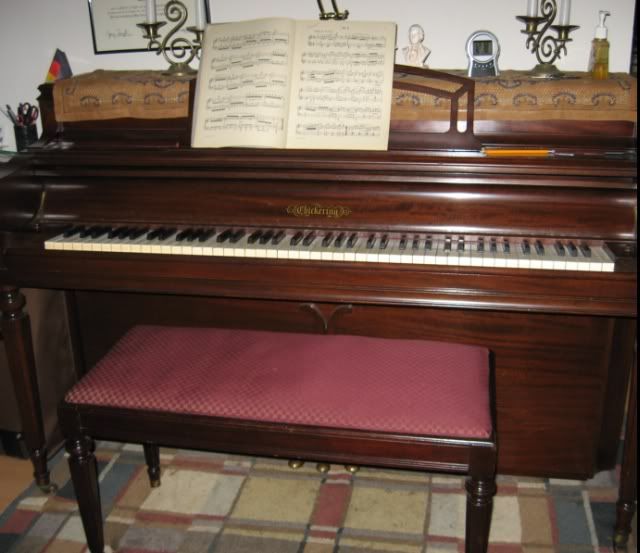The construction of musical instruments is one of the most demanding and detailed kinds of production that exists. One instrument can comprise a dozen or more kinds of wood, metals, and other materials and must be made to exact specifications. At that, no matter how closely regulated the production process is, the most minor variations produce instruments of wildly differing quality.

Bolivia no longer has commercially viable mahogany (trees > 60 cm diameter at breast height) across 79% of its range. In Peru, mahogany’s range has shrunk by 50%, and, within a decade, a further 28% will be logged out. Approximately 15% of the mahogany range in these two countries is protected, but low densities and illegal logging mean that this overestimates the extent of mahogany under protection.
Some of my conservationist friends suggest that I get a new piano, one made sustainably. Besides the impracticality of this, and the deep emotional connection I have to my piano, I think that I remember better to practice sustainability when I look each day at my piano and marvel at my luck in finding it. I am in awe of the thousands of man-hours it takes to produce a piano by hand, and of the enormous resources that went into making each part of it, and it reminds me that I have a duty not only to keep my piano in top condition for my successors, but also to practice sustainability in my own living so that one day all those in the music industry will have access to the resources they need.
And it’s not just pianos that are endangered. Pernambuco wood, used for bows for stringed instruments, is restricted, as are the ebony fingerboards, tuning pegs, chinrests, etc. One day even horsehair might be restricted.
In order to have the best instruments possible, it is necessary for us to have the proper materials from which to make them. History is littered with extinctions of species, both plant and animal, and we don’t yet know all the value each species might have. Therefore, it’s necessary for the future that we live responsibly and with as little negative impact on the planet as possible, and preserve as much as we can for future generations.
As of now, the use of mahogany is restricted, as is ebony, while ivory is just plain illegal except in very restricted conditions. Yet this situation could be reversed, and everyone could have instruments made of the materials they prefer, if we choose to do so, and it’s simple to do. We must make choices in the way we live that leave our planet in a better state than we found it. Where possible we must not only preserve but expand forests, reuse metals, and do what we can to ensure that future generations of musicians, and the people that support them–luthiers, publishers, the makers of all the things that musicians need–have the resources that are required to produce the best possible instruments and supplies.
For those of you who have not explored my site yet, I have published my environmental policy. I encourage others in the music industry to do the same; by learning to support other environmentally responsible businesses, we can ensure that musicians have the resources they need.